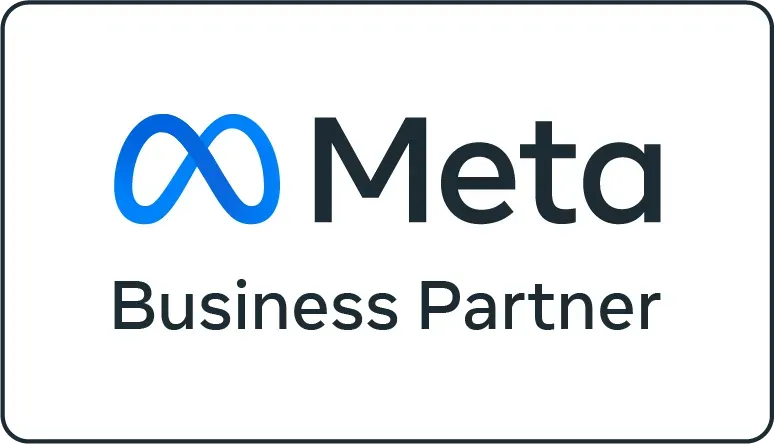
The Best Real Estate Marketing Tactics to Boost Your Sales in 2025
Introduction to Real Estate Marketing
Real estate marketing involves not only listing properties, but also building relationships and effectively communicating value to attract potential buyers or renters—a crucial aspect of a successful real estate business. Consistent branding is essential in building trust, credibility, and differentiation in the real estate market.
Effective real estate marketing strategies help real estate agents and professionals stand out in a competitive market and build a strong personal brand. Developing a marketing plan is essential for establishing a strong presence in the real estate industry and staying ahead of the competition.
Real estate marketing is the backbone of any successful real estate business, as it ensures properties are effectively promoted and reach the right audience. Innovative marketing strategies, technology platforms, and social media marketing can provide a competitive edge for agents, helping them attract more clients and stand out from other market players.
A well-planned marketing campaign can help increase the value of properties and attract more clients, ultimately leading to a successful real estate business. Most potential buyers or renters are unaware of their options, and attracting them is the first step to closing deals.
Digital marketing can be more cost-effective than traditional advertising, particularly through social media and blogs. Social media allows real estate agents to connect with a vast audience, making it a powerful tool for engagement and promotion. Regularly posting updates and high-quality images on social media helps agents stay top-of-mind.
You should typically structure your marketing to gain visibility in the first 21 days after a property is listed, as this is a critical period to attract interest.
Developing a Marketing Plan
A marketing plan should include a clear definition of the target audience and the most effective marketing strategies to reach them, such as online advertising and social media campaigns.
Real estate agents should focus on building a strong personal brand and establishing themselves as local experts in the real estate industry. Defining what makes you unique is the first step in developing a strong personal brand.
A marketing plan should also include a budget for marketing materials, such as professional photography and print advertisements, to showcase properties effectively.
Setting a detailed budget for marketing helps to avoid unexpected costs and ensures alignment with the broader strategy. It is important to regularly monitor and adjust your overall marketing budget to maintain campaign effectiveness and stay within financial limits.
Utilizing marketing tools and technologies, such as social media and email marketing, can help real estate professionals reach a wider audience and stay organized.
In general, you should expect to pay 0.5% to 1% of your property’s selling price on marketing and advertising costs. These may include paid online ads and other paid promotional tactics. Real estate marketing fees can sometimes be negotiated, particularly with agents to include costs in their fees or pay as they’re incurred.
A $2 million property in Randwick may incur approximately $8,000 in marketing costs, while a $1 million property in the same area may cost around $4,000.
You should always confirm what marketing is included in your agent’s commission before additional expenses are incurred. Plan for additional marketing efforts and their associated costs, such as professional floor plans, custom advertising copy, signage, brochures, and targeted digital campaigns, to maximize property exposure.
Online Advertising Strategies
Online advertising is a powerful tool for reaching potential buyers and promoting properties, and is a key component of effective real estate marketing.
Real estate agents should use online platforms, such as social media and real estate websites, to showcase properties and attract new leads, and to collect email addresses from potential clients. Sending regular property updates helps keep clients informed about new listings and market trends, increasing engagement and building trust.
Search engine optimization (SEO) is crucial for ensuring that property listings appear at the top of search engine results, increasing visibility and attracting more potential buyers. Optimizing for search engines helps real estate agencies improve their online presence and attract local clients searching for properties. Using local keywords in website content and listings further enhances search engine rankings for real estate services.
Online advertising can be targeted to specific demographics and interests, allowing real estate agents to reach their target audience more effectively and build a strong real estate brand. Showcasing new listings in social media posts and newsletters generates interest and draws attention from potential buyers.
Digital marketing allows agents to reach a global audience and specifically target potential buyers or sellers based on demographics, location, interests, and income.
The Internet has become a primary source of information for homebuyers and renters, with 93% starting their search online. Real estate portals are crucial as potential buyers use them as their main tool to search for properties. By using real estate advertising portals, you can reach a larger audience at a reasonable cost. Some platforms offer 'Until Sold' listings, which remain active until the property is sold, providing ongoing exposure until a successful sale is achieved.
A fast, mobile-friendly, and visually appealing website acts as a digital storefront for real estate listings, enhancing the user experience and attracting more inquiries.
Visual Marketing
High-quality photos and virtual tours are essential for showcasing properties effectively and attracting potential buyers, and are a key aspect of property marketing.
Professional photography can help highlight the best features of a property and make it stand out from others in the real estate market. High-quality images attract potential buyers more effectively than poor quality images, making them a critical component of any marketing strategy. The first marketing impressions for potential buyers come from high-quality images, which make listings stand out and attract inquiries.
A professionally drawn, to-scale floor plan is invaluable for property marketing. It provides potential buyers with a clear understanding of the property's layout, helping them visualize how the space can be used. Integrating a detailed floor plan with high-quality photos and compelling copy creates a more effective and engaging marketing strategy. Floor plans and videos can also be used to provide a more detailed and interactive view of a property, and to give potential buyers a better sense of the property’s layout and features. The cost of creating floor plans for marketing can be around $370, and copywriting to highlight property benefits can cost about $180.
Creating visual walkthroughs and 3D renders provides potential clients with immersive experiences, allowing them to explore the property in detail before visiting in person.
Styling a home before taking marketing photographs can boost the final sales price significantly. Hiring professional property styling services can further enhance the home's appeal, attract more buyers, and potentially increase the sales price by improving the visual presentation in all marketing materials.
Visual marketing can be used in combination with other marketing strategies, such as social media and print advertising, to create a comprehensive marketing campaign and promote a real estate agent’s brand.
Investing in high-quality photography and videography for property marketing can range from $300 to $1,500 depending on the service provided, making it a worthwhile investment for effective property promotion.
Marketing Tools and Technologies
There are many marketing tools and technologies available to real estate agents, including social media, email marketing, and customer relationship management (CRM) software, which can help them manage their marketing efforts and stay organized. Offline marketing tools such as QR flyers, branded kits, signboards, drop cards, and brochures are also effective for local outreach and property promotion.
These tools can help real estate agents streamline their marketing efforts, track leads, and stay in touch with potential buyers, and can be used to build a strong personal brand and establish a real estate agent as a local expert.
Customer relationship management (CRM) software is a powerful tool for managing leads and client communication, ensuring that agents can nurture relationships effectively.
Marketing automation software can also be used to automate routine marketing tasks, such as email marketing and social media posting, and to nurture leads and build relationships with potential buyers.
Email marketing remains a valuable tool for reaching potential clients and maintaining relationships with existing ones.
By leveraging these tools and technologies, a real estate professional can create a more efficient and effective marketing campaign and stay ahead of the competition in the real estate industry. A strong online presence is necessary for real estate agents to establish expertise and build trust with potential clients. A real estate professional can further establish themselves as a trusted authority by consistently demonstrating market knowledge and sharing valuable insights.
Regularly collecting client testimonials and showcasing them builds credibility and trust with potential clients. Encourage clients to leave reviews on various platforms to further enhance your reputation. Positive reviews build credibility and trust among potential clients. Showcasing satisfied clients through testimonials enhances social proof and demonstrates the quality of your real estate services. Online reviews and social proof play a significant role in building trust in real estate.
Insights from top agents can provide valuable guidance on effective marketing strategies and best practices, reinforcing the importance of expert advice in achieving successful outcomes.
Open Houses and Events
Open houses and events are essential components of real estate marketing strategies, offering potential buyers the chance to experience properties in person and connect with the space on a deeper level. A skilled real estate agent knows that hosting open houses is more than just opening the doors—it’s about creating an inviting atmosphere that allows buyers to envision themselves living in the property. To maximize the effectiveness of these events, agents can collaborate with local businesses to provide added value, such as complimentary home staging or interior design consultations, which can enhance the appeal of the property. Promoting open houses through online advertising and targeted social media campaigns ensures maximum exposure and attracts the right buyers from the local market. By consistently hosting open houses and community events, real estate professionals not only showcase properties effectively but also build a strong personal brand and establish themselves as trusted experts in their market. These strategies are key to driving interest, generating leads, and ultimately achieving successful sales in today’s competitive real estate landscape.
Marketing Budget Optimization
Optimizing your marketing budget is a critical step for any successful real estate business. Real estate agents must strategically allocate resources across various channels, including online advertising, print advertising, and social media campaigns, to ensure maximum impact. By closely monitoring the performance of each marketing effort—such as tracking website traffic, social media engagement, and lead conversion rates—agents can identify which strategies deliver the best results. This data-driven approach allows agents to adjust their marketing budget, focusing on the most effective channels and eliminating underperforming tactics. Utilizing marketing tools like CRM software can further streamline marketing efforts, helping agents manage leads efficiently and refine their overall strategy. By continuously analyzing and optimizing their marketing budget, real estate agents can stay ahead of the competition, make the most of every dollar spent, and drive growth for their real estate business.
Measuring Marketing Success
For real estate professionals, measuring the success of marketing efforts is essential to ensure that their strategies are delivering results. By tracking key performance indicators such as website traffic, social media engagement, and lead conversion rates, agents can gain valuable insights into the effectiveness of their marketing campaigns. Additionally, monitoring the number of open houses held, property views, and actual sales provides a clear picture of how well marketing efforts are translating into tangible outcomes. Regular analysis of these metrics allows agents to identify strengths and areas for improvement, enabling them to refine their marketing strategies for even greater success. In the fast-paced real estate landscape, effective real estate marketing relies on ongoing evaluation and adaptation, ensuring that agents remain competitive and continue to achieve their business goals.
Building a Strong Personal Brand
In today’s competitive real estate market, building a strong personal brand is essential for real estate agents who want to stand out and succeed. A well-crafted personal brand helps agents differentiate themselves, build trust with potential clients, and attract new leads. To establish a strong personal brand, agents should invest in high-quality marketing materials, including professional photography and engaging content that highlights their expertise and unique approach. Leveraging social media platforms is also crucial—by sharing valuable insights, showcasing properties, and interacting with the local community, agents can demonstrate their knowledge and commitment to excellent service. Consistently providing outstanding customer experiences and maintaining a visible online presence will help agents build a loyal client base and reinforce their reputation as trusted real estate professionals. Ultimately, a strong personal brand is the foundation of a successful real estate business, keeping agents top of mind with potential clients and driving long-term growth.
Real Estate Marketing Trends
Keeping up with the latest real estate marketing trends is vital for agents who want to stay ahead in the industry. Today’s most effective real estate marketing strategies include the use of virtual tours, which allow potential clients to explore properties from anywhere, and the collection of online reviews to build credibility and trust. Social media campaigns remain a powerful way to engage with the local market and showcase properties to a wider audience. Creating high-quality, engaging content—such as blog posts, videos, and interactive posts—helps agents provide value and establish themselves as experts in their field. Additionally, leveraging email marketing and marketing automation tools enables agents to nurture leads and maintain ongoing relationships with potential clients. By embracing these trends and continuously refining their marketing strategy, agents can ensure their marketing efforts remain effective, reach the right audience, and drive success in the ever-evolving real estate market.
Print Advertising and Promotion
Print advertising, such as newspapers and magazines, can be an effective way to reach potential buyers who may not be actively searching online, and can be used to promote a real estate agent’s brand and listings.
Print advertisements can be used to showcase properties and provide information about upcoming open houses and other events, and can be targeted to specific demographics and interests.
Print advertising is generally more expensive than online listings, but it can reach passive buyers who are not actively searching for properties, making it a valuable addition to a marketing strategy.
Real estate agents should also use print materials, such as brochures and flyers, to provide additional information about properties and promote their services, and to build a strong personal brand and establish themselves as local experts.
Signboards are a key component of property marketing, capturing interest from local buyers.
Open houses allow potential buyers to tour properties in person and generate competition among buyers.
By combining print advertising with other marketing strategies, such as online advertising and social media, real estate agents can create a comprehensive marketing campaign and reach a wider audience.
Offering virtual tours of properties provides potential buyers a comprehensive view without needing an in-person visit, enhancing the appeal of listings.




